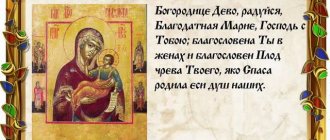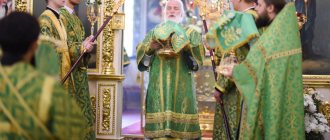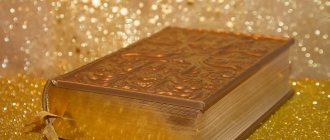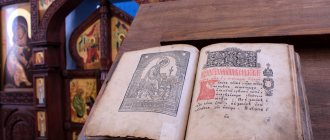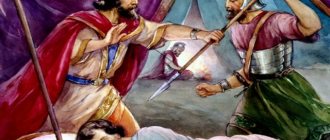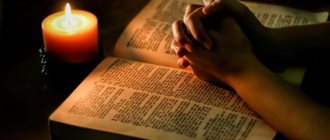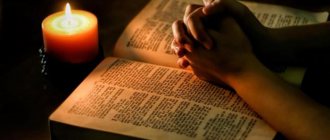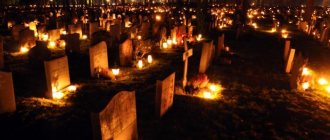Psalter - a collection of prayer poetry
Psalm 26 is one of the most famous prayer hymns in the Old Testament book of Psalms. In total, this collection contains 150 psalms. Most of them were compiled by the Hebrew king and prophet David, who lived at the turn of the first and second millennium BC. The authorship of individual psalms is also attributed to those close to David, the prophet Moses and King Solomon.
King David, author of the 26th Psalm of the Psalter (monument in Jerusalem)
The psalm is an example of a heartfelt and poetic appeal to God. The chants of the Psalter differ from each other in content and mood. Thus, some psalms are imbued with joyful praise and thanksgiving to the Almighty. Others represent a prayer of repentance. There are chants in the Psalter that are similar to historical documents. However, they are all united by a cross-cutting theme - the connection between man and God.
So, the book of Psalms is a real spiritual treasure, which reflects all the facets of the good relationship between the Creator and His main creation. Therefore, over the course of thousands of years, the sacred lines of the psalms have not lost their relevance for believers. St. Ephraim the Syrian called the Psalter “excitement of the soul to God,” “the joy of God-lovers,” which even brings tears from a “heart of stone.” The monk instructs:
“Let the psalm be continually in your mouth. The called name of God drives away demons and sanctifies the psalmist” (“Creations”, volume 2).
Why read the psalms
Patristic Tradition speaks of the reading of the psalms as an unusually effective weapon against the devil. By immersing themselves in their essence, Christians cultivate devotion to the Creator and strengthen themselves in confrontation with evil spirits and the temptations they cause.
Psalms are said under different circumstances. Sometimes, even being “on the edge of the abyss.”
St. Basil the Great taught:
“The Book of Psalms is a treasury of good teachings and carefully seeks out what is beneficial to everyone. She also heals old wounds of the soul, and quickly brings healing to the recently wounded. He restores the sick and supports the undamaged. In general, he destroys as much as possible the passions that exist in human life.”
St. John Chrysostom testified:
“If you have fallen into temptation, you will find abundant consolation in the psalms. If you sin, you will find thousands of ready-made medicines here. Whether you fall into poverty or some kind of misfortune, the psalms will show you many havens.” St. Ambrose of Optina instructed: “You will see through experience how great the power of God-inspired psalm words is, which scorch and drive away mental enemies like flame. And prayer is always stronger with psalm words than with our own.”
Archpriest Mikhail Makhov says:
“Reading the Psalter gives a lot. This is one of the great books. In monasteries they read it between services and at night, in Chikhachevo (in the St. Nicholas Monastery) they read it between lectures, for some kind of “cleansing of space”, for protection.”
Interesting fact
The Book of Psalms is highly revered by the Jews. Since ancient times, they have realized that these sacred texts have tremendous power. The Jews claim that for 28 centuries the book of Tehilim (Psalms) has been protecting their people from suffering and leading them out of the most hopeless situations. In their opinion, everyone who is constrained by circumstances or experiencing difficulties is obliged to read this book daily and as concentratedly as possible.
Psalm 26: content and interpretation
Like all the songs that make up the Psalter, the 26th Psalm is divided into short verses for convenience. There are 14 of them in total. The Psalm was composed by David during a dramatic period of his life. The prophet Samuel had already anointed him as king, but the young man had not yet ascended the throne. For some time he continued to serve at the court of King Saul.
The people loved David: he was not only a brave warrior, but also a gifted musician. He was also married to the king's daughter. Despite this, Saul began to hate David because he saw him as a potential rival for the throne. Several times the king tried to kill the young man. David was forced to hide from persecution until Saul's death.
During the period of persecution, David felt that he was under the protection of God. The future king composed Psalm 26 to express love for the Lord and faith in His Providence. He continues to pray to the Almighty for intercession and help in following the true path. Professor of Theology A. Lopukhin notes:
“David prays to God to help him to be pure in his affairs, and no matter how difficult his present situation is, not to allow him, even out of necessity, to commit any crime and break His Law” (“The Explanatory Bible”).
In the psalm, David mentions the sad separation from the Fatherland and relatives. But the future king emphasizes that with God he is not afraid of any sorrows. The author asks the Creator to give him the opportunity to return to his homeland and again attend such soul-sweet services. David says that he wants to contemplate and sing of Divine beauty for the rest of his life.
About Psalm 50
The psalm was composed by the royal prophet as a prayer of confession, in which David poured out his heart after committing the gravest sins: fornication with a woman who has a husband and the murder of her husband. Convicted by the seer Nathan, the ruler of Israel realized the full filth of his deeds and the insult that he inflicted on his Great Creator. In the psalm, the king sheds sorrowful tears of repentance and trusts in God’s Mercy, completely submitting to His Righteous Judgment. About a soul purified by tears of repentance, he poetically says that it becomes “whiter than snow.”
The 50th psalm is considered repentant , since this creation is an example of genuine humility and sincere heartfelt contrition, which, according to David, are the main and most necessary sacrifice to the Creator.
Russian Chrysostom Innocent of Kherson instructed:
“The repentant 50th Psalm of King David is written so powerfully, such a feeling of repentance is embedded in it, that even now, when someone reads it, the enemy of the human race trembles and trembles, unable to bear its strength.”
Psalm 26 in Worship and Personal Prayer
Like other canonical books of the Old Testament, the Psalter is recognized by the Church not only as soul-saving, but also inspired by God. That is, it was written by a righteous man under the influence of the Holy Spirit Himself. Therefore, soul-inspiring psalms or individual verses thereof have been used in every divine service since pre-Christian times. In our time, the reading of Psalm 26 is included in the rite of worship of the 1st hour of the eve of the feast of the Epiphany of the Lord. This psalm is also quoted during the sacred rite of tonsure into the ryassophore (one of the degrees of monasticism).
As separate prayers, the psalms are read by Orthodox Christians in various life circumstances. The prayer “Psalm 26” (along with Psalm 90) is considered an effective means of protection when threatened by visible or invisible enemies. It is also read in illnesses and other sorrows. The Greek elder of the 19th-20th centuries, the Monk Arsenios of Cappadocia, blessed the peasants to read Psalm 26 for protection from enemy attacks on fields and villages.
The Russian elder of the last century, Schema-Archimandrite Vitaly (Sidorenko), advised Christians to read Psalms 26, 50 and 90 daily for God’s protection. The elder added that hymns should be preceded, alternated and ended with a prayer to the Most Holy Theotokos.
Psalm 26 helps us to enrich ourselves with the spiritual experience of King David, to nourish our soul and heart with gratitude to the Lord and complete trust in Him. Psalmody consoles and strengthens us in the fight against sins. You need to read the psalm with a humble and open heart to God. This is not an incantatory text that requires only formal recitation. The Lord responds to prayers only if He sees in us sincere faith and desire for salvation. To make your prayer more thoughtful and conscious, you can read Psalm 26 in Russian or first familiarize yourself with its detailed interpretation.
Rule of Schema-Archimandrite Vitaly (Sidorenko)
Schema-Archimandrite Vitaly is a disciple of the pious elders of the Glinsk Hermitage. His ascetic path was not easy. He was a holy fool, a novice at the monastery, and a desert dweller. As a result of these exploits, he acquired the gift of wisdom and became a mentor for many of Christ's sheep.
The schema-archimandrite instructed his spiritual children to say the 26th, 50th and 90th psalms every morning when leaving home. At the beginning, at the end and between them, say the greeting “Rejoice to the Virgin Mary.”
The priest explained:
“After this, no trouble will touch you! Read these psalms, and Christ and the Mother of God will grant you their mercies.”
Add to reading “Virgin Mother of God, Rejoice”
The basis of this Greatness are quotes from the Gospel of Luke: the appeal of the Archangel Gabriel to the Most Pure Mother of God:
“The angel came to Her and said: Rejoice, full of grace! The Lord is with You; Blessed are You among women" (Luke 1:28) and the magnification of the Mother of God by the righteous Elizabeth: "Elizabeth was filled with the Holy Spirit, and exclaimed with a loud voice and said: Blessed are You among women, and blessed is the fruit of Your womb!" (Luke 1:42)
Interesting fact
According to historians, the combination of these Gospel fragments into a common prayer could have been performed by St. Cyril of Alexandria, a teacher of the Church who labored in the 5th century. In Catholicism, since the 11th century, this Majesty has been known as “Ave Maria”.
In Rus', this prayer received sacred meaning around the 17th century. It was repeated many times by those who wanted to intensify their feat of prayer and by those who appealed to the Most Pure Virgin for consolation or wanted to thank Her for her help. This happened, among other things, under the influence of the “Blessed Star” manuscript, which was widespread in those days and copied by hand, in 15 chapters of which the miracles that occurred from this prayer were told.
Archpriest Oleg Kruchinin explains: “for example, there was a story about a certain monk who laughed at prayer and was deprived of his mind. And the bishop, who did not recognize this prayer, saw himself drowning in a dream. After he repented, the dream repeated, but the Mother of God saved him from drowning. Such stories were easily remembered by the people and served for spiritual education.”
Many elders spoke about the power of this prayer. Among them are Saints Seraphim of Sarov and Parthenius of Kiev, Elder Iliodor of Glina . And the holy martyrdom to Seraphim Zvezdinsky , who wrote to his spiritual children from exile:
“Protect yourself more often and more diligently, my dear children, with this indestructible wall. With this prayer we will not perish, we will not burn in fire, we will not drown in the sea. If Satan, who hates us, stops us on our path and knocks us down, then, sending the Archangel’s Greeting, we will rise up, those who are sick in soul will be healed, those polluted by sin will be cleansed and made white.”
Archpriest Oleg Kruchinin explains:
“Reading “Rejoice to the Virgin Mary,” we become like the angels singing the praises of the Mother of God, and when we say “the fruit of your womb,” we mean Jesus Christ. Therefore, we enter into prayerful communication with Them and are under Their heavenly protection.”
Text of Psalm 26 with translation into Russian
Psalm 26
1 The Lord is my enlightenment and my Savior, whom will I fear? Lord, Protector of my life, from whom shall I fear? 2 Sometimes you come close to me with malice, even if you take away my flesh, insulting me, and defeating me, you become weak and fall. 3 Even if an army besieges itself against me, my heart will not fear; if it rises up to fight against me, I will trust in Him.
4 I have asked one thing of the Lord, and this I will require: that I may dwell in the house of the Lord all the days of my life, that I may behold the beauty of the Lord, and that I may visit His holy temple. 5 Because He hid me in His village in the day of my evil, He covered me in the secret of His village, He lifted me up on a rock. 6 And now, behold, I have lifted up my head against my enemies: I have died and devoured in His village a sacrifice of praise and shouting, I will sing and sing praises to the Lord.
7 Hear, O Lord, my voice, whereby I cried: have mercy on me, and hear me. 8 My heart says unto you, I will seek the Lord. I will seek Your face, O Lord, I will seek Your face. 9 Turn not Thy face away from me, nor turn away Thy servant with wrath: be my helper, do not deny me, nor forsake me, O God of my Savior. 10 Because my father and my mother abandoned me, but the Lord will receive me.
11 Give me the law, O Lord, in Thy way, and guide me in the right path for my enemy’s sake. 12 Do not betray me to the souls of those who afflict me, for I have stood up as a witness of unrighteousness and lied untruthfully to myself.
13 I believe to see the good of the Lord on the land of the living. 14 Be patient with the Lord, be of good courage and let your heart be strong, and be patient with the Lord.
Spiritual instructions of the Optina monks
The Monk Barsanuphius of Optina instructed:
“Read the Psalter every day, even a little, and the Lord will not leave you with His mercy, He will always be your Helper and Comforter. It is also good to read Psalms 90 and 50 daily; Psalm 90, “Alive in the Help of the Most High,” is useful to read three times a day: morning, noon and evening. At noon a person is especially attacked by a prodigal demon, and this same psalm drives him far away.”
The Monk Ambrose of Optina wrote to the children being cared for:
“When you feel fear and an enemy attack, it will be useful, following the example of the ancient fathers, to pronounce (so that only your ears can hear) with your lips psalm words, for example: “The Lord is my enlightenment and my Savior, whom will I fear?” And the entire 26th Psalm... Memorize and read often “Alive in the Help of the Most High.”
Advice from St. Church Fathers
One day a monk asked St. Arseny the Great, what to do if you don’t understand what the psalms say. The elder advised him to continue reading in such cases, assuring him that “the demons understand everything and run away.”
In a similar way he responded to spiritual children and others. Ambrose of Optina, saying:
“You don’t understand, but the demons understand perfectly well and run away. Read without understanding yet, but someday you will begin to understand.”
St. John Chrysostom advised singing psalms while doing any craft, and if there is no desire or strength to do it out loud, then pronounce them mentally.
Elder Jerome of Aegina instructed:
“You must love the Psalter and read at least two psalms every day. When temptations come to you, begin to read the Psalter with attention and love and you will feel a change within yourself.”
Monk Trofim, one of the three Optina new martyrs who died on Easter morning on April 18, 1993 and was highly revered by the people, advised one parishioner he knew:
“Read the Psalter. Sometimes the sky is cloudy, and my soul is gloomy. And if you start reading, suddenly the sun will shine through, and there will be such joy in your soul. I experienced it myself, believe me!”
